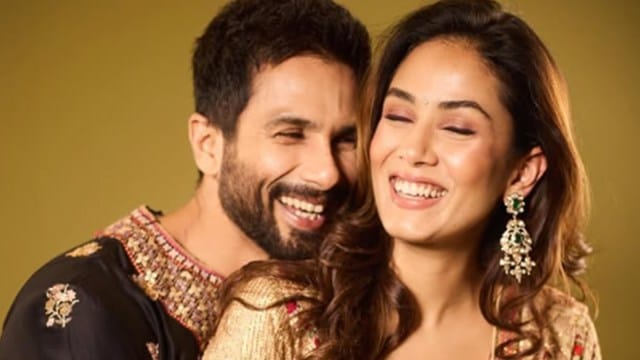📣 For more lifestyle news, click here to join our WhatsApp Channel and also follow us on Instagram
‘Wish I could do what she’s doing’: Mira Kapoor on watching friends chase dreams while she navigated marriage at 21
Mira Kapoor recalled how watching her peers chase academic and professional goals made her question her own trajectory.
 Mira Rajput Kapoor married actor Shahid Kapoor when she was just 21 years old (Source: Instagram/Mira Rajput Kapoor)
Mira Rajput Kapoor married actor Shahid Kapoor when she was just 21 years old (Source: Instagram/Mira Rajput Kapoor)Mira Rajput Kapoor, who married actor Shahid Kapoor at the age of 21 and became a mother soon after, recently opened up about the loneliness she experienced in those early years.
Speaking to content creators Naina Bhan and Sakshi Shivdasani on their podcast, she shared, “I think we (Mira and her friends) did evolve separately. I’d like to admit that it was quite isolating because we were just in different phases of life at that time. You get to different phases in life, and you look at your friends. I wish I could do what she’s doing.”
Mira recalled how watching her peers chase academic and professional goals made her question her own trajectory. “For the longest time, it was me thinking, ‘Oh, my friend has gone for her Master’s, or they’re travelling, or like there’s a gap year. You know, life is great. You move cities, you have a wonderful family, kids, all of that,’” she said.
The disconnect even affected her friendships. “I even remember I couldn’t speak to them as often as I used to. They were like, ‘What has happened? Just because you’ve moved and gotten married doesn’t mean you forget us.’ I was like, ‘Guys, genuinely, I’m occupied and caught up and stuff.’ I don’t think they understood it then, but fortunately, the friendship kind of sustained. They understand it now because they’re in a similar phase.”
How common is this sense of disconnection, and what impact can it have on a young adult’s mental health and identity?
Sonal Khangarot, licensed rehabilitation counsellor and psychotherapist, The Answer Room, tells indianexpress.com, “It’s incredibly common for young adults, especially women in India, to feel disconnected during major life transitions like marriage or motherhood. Many women find that their peer group — friends who are single, studying, or working—no longer relate to their new life stage, which can create a sharp sense of isolation. This is often intensified in urban Indian settings where the push for productivity and visibility — especially through social media — adds pressure to ‘have it all together’.”
View this post on Instagram
A lack of emotional or practical support, especially in nuclear families or after relocating post-marriage, can severely affect one’s mental health, adds Khangarot. “Women may feel lonely, experience identity loss, or question their self-worth as their roles shift from daughter to wife to mother, often with little room for personal expression or autonomy.”
What are some healthy ways to navigate evolving friendships when life circumstances no longer align?
Here are some healthy ways to navigate this, according to Khangarot:
Allow space without guilt: It’s okay if connection isn’t as frequent — honour the new rhythm without assuming disinterest or failure.
Communicate honestly: Share how your life has changed and listen to theirs — honest conversations can preserve connection even across distance.
Redefine the friendship: Some friendships thrive in shorter, more intentional check-ins; others may shift from daily talks to occasional support, and that’s okay.
Grieve if needed: If a friendship fades, allow yourself to mourn it. Letting go can be an act of love and acceptance, not resentment.
Stay open to new connections: Making new friends in your current phase—parenting groups, hobby classes, or local communities—can bring fresh companionship.
📣 For more lifestyle news, click here to join our WhatsApp Channel and also follow us on Instagram
- 01
- 02
- 03
- 04
- 05



























